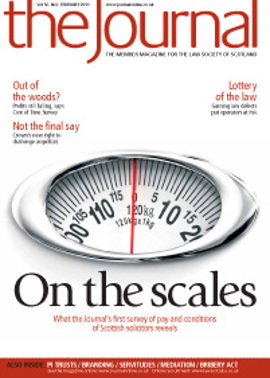Show us the files

Scientific evidence is appearing in more criminal cases than ever before. It is therefore of vital importance that the basis of any scientific opinion is subject to proper scrutiny.
Of all UK jurisdictions, only Scotland has laboratories owned and operated by the police, under the Scottish Police Services Authority (SPSA). Is it coincidental that this is the only jurisdiction that refuses to fully share, as a matter of “SPSA policy”, the case files generated in the examination of physical evidence?
The case file can extend to thousands of pages. The request for copies of these is resisted by the SPSA.
We have sought:
(1) full disclosure of all of the laboratory case files;
(2) the right to copy these files to our computerised case management system; and
(3) the right to retain such disclosed material.
The constraints of legal aid, and the understandable reluctance of courts to delay trials while the experts wrangle, conspire to prevent this important matter from being resolved once and for all.
We consider that the main purpose of the defence expert is to review the basis of the opinion offered by the Crown scientist.
The scientists’ work, including correspondence with the police, is recorded in a document called a case file. Traditionally, defence experts have either simply visited the lab for what can amount to a flick-through of the file, or have “retested” the item.
Retesting is expensive, time consuming, and it is frequently impossible to retest exactly the same material. A diligent and thorough study of the case files can take many hours and involve discussions with other scientists and the necessity to revisit the files as new information or theories come to light.
We understand that the SPSA laboratories are accredited to a quality standard termed ISO 17025. That standard requires that the laboratory has written procedures for the performance of any tests that it performs. The SPSA resists disclosure of these.
So what should experts for the defence be seeking? The SPSA wishes to restrict access to only certain parts of the case files. Such a blanket policy is unacceptable because it is sometimes necessary to know what instructions and/or information have been received by the scientist when they make decisions affecting the tests to be performed or the interpretation of the results. We therefore require unrestricted access to the complete file in principle, redaction being by exception and each redaction justified.
It is essential for any scientist reviewing another scientist’s work to be aware of the limitations of the examination and why they were limited.
SPSA appears to accept in principle that we can receive copies of some material. However, they insist that we cannot copy those copies. This inhibits our ability to work with the material.
We therefore would prefer the right, which may be exercised at our option, to copy the entire case file as we do in other jurisdictions. This enables immediate access to the case file by our own scientists, and by our consultants who may be anywhere in the world.
The terms now sought by the SPSA specifically prohibit our copying of the case file. This is, in our opinion, unjustified and inhibitory to our full consideration of the files.
We wish to retain what is disclosed unless there are prima facie reasons for not retaining it. This is in line with other defence material held by solicitors.
It is common professional practice to use case material in presentations at conferences or educationally. We are seeking the right to the same opportunities.
We comprehend the argument that material is normally disclosed only for the purposes of the instant case. Scientific information is a fundamentally different form of information than, for example, eyewitness statements or the labels, in that:
(a) it becomes part of the experts’ specific expertise;
(b) it may form evidence in other cases;
(c) it may contain material of scientific or educational interest.
We are seeking to establish these principles of disclosure to ensure a right, exclusively denied in Scotland, on behalf of the defence which will enable a thorough and diligent analysis of the Crown findings and opinion. This right may not be exercised in full in every case, but we believe that it is essential to have it established rather than to have to endure a prolonged and wasteful battle every time such a right is sought.
Other jurisdictions take the necessity for thorough investigation seriously enough to require that their experts make a declaration that the expert has made all inquiries which the expert believes desirable and appropriate and that no matters of significance which the expert regards as relevant have been withheld from the court.
Regrettably, in Scotland, we must now incorporate a declaration to the opposite effect.
A fuller version of this article can be read at www.journalonline.co.uk/extras
In this issue
- Mutuality in action
- Tough choices
- Show us the files
- RoS launch business eZine
- Rewards of the job
- Pressure points
- Measure for measure
- Rage against the machine?
- Second bite at the cherry
- Personal injury trusts: benefits and PITfalls
- Countdown for Legal Aid Online
- Training: SYLA will play its part
- Law reform update
- Branding or bragging?
- The learning curve
- Ask Ash
- Mediating retirement
- CICA - a question of timing
- The evidence against
- Fought all the way
- Family friendly
- Stakes too high
- Much ado about plenty
- Limits of authority
- Scottish Solicitors' Discipline Tribunal
- Website review
- Book reviews
- Straight dealing
- Servitudes, developers and flexible rights






